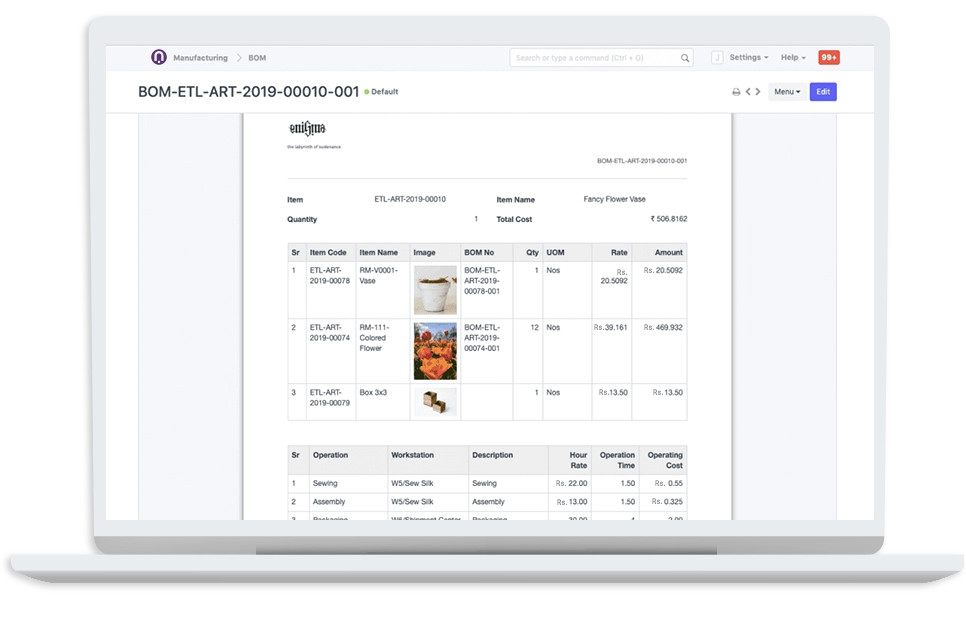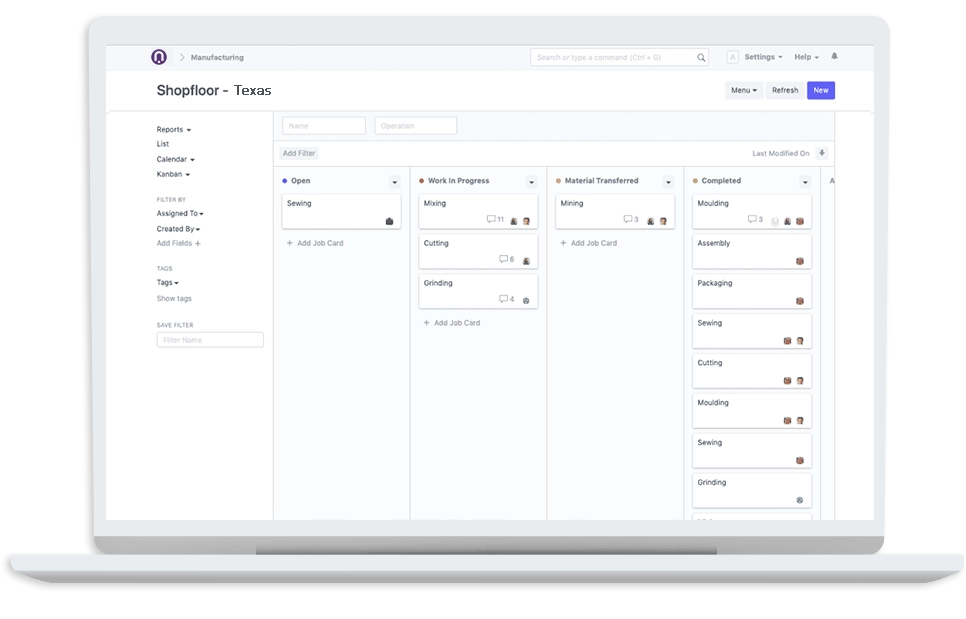Eccountbook ERP: Transforming Inventory Management
Unlock the power of seamless inventory control with Eccountbook ERP! Streamline your operations, optimize stock levels, and ensure compliance effortlessly. With real-time tracking, intelligent forecasting, and intuitive tools, managing your inventory has never been easier. Say goodbye to stockouts and excess inventory – join the Eccountbook revolution today!
Real-time Inventory Tracking:
Real-time inventory tracking provides businesses with a comprehensive overview of their inventory levels at any given moment, from raw materials to finished products, across multiple locations. This ensures that operations run smoothly and efficiently, as managers can make informed decisions based on up-to-date information.


Inventory Optimization:
By implementing intelligent tools such as reorder points and demand forecasting, businesses can maximize efficiency by preventing stockouts and minimizing excess inventory. This not only helps in reducing costs associated with carrying excess inventory but also ensures that products are available when needed, improving customer satisfaction.
Multi-location Management:
For businesses operating across multiple warehouses or locations, multi-location management software allows for seamless inventory management, facilitating easy transfers and consolidation for accurate reporting. This ensures that inventory levels are balanced across all locations, optimizing the distribution process.


Lot and Serial Number Tracking:
Industries with stringent quality control requirements can benefit from lot and serial number tracking capabilities. This feature allows businesses to trace inventory by lot or serial numbers, ensuring product quality and compliance with regulatory standards.
Barcode and RFID Integration:
Integration of barcode or RFID technology streamlines inventory processes such as receiving, picking, and shipping. By automating these processes, businesses can improve accuracy, reduce errors, and increase efficiency in their operations.


Supplier and Vendor Management:
Efficient supplier and vendor management are crucial for maintaining a smooth procurement process. Inventory management software can automate tasks such as supplier information management and purchase order generation based on inventory levels, ensuring timely replenishment of stock.
Inventory Valuation Methods:
Accurate financial reporting relies on proper inventory valuation methods. Inventory management software offers various valuation methods such as FIFO, LIFO, or weighted average, allowing businesses to choose the most suitable approach for their operations and comply with accounting standards.


Demand Forecasting:
Integration with demand forecasting tools enables businesses to anticipate fluctuations in demand and adjust their inventory levels accordingly. By staying ahead of demand trends, businesses can avoid stockouts or overstocking, optimizing their inventory management practices.
Integration with Other Modules:
Integration with sales, purchasing, and production modules ensures synchronization across the supply chain. This allows for seamless data sharing and communication between different departments, improving overall efficiency and productivity.


Reporting and Analytics:
Inventory management software provides valuable insights into inventory performance, trends, and inefficiencies through reporting and analytics tools. By analyzing this data, businesses can make informed decisions and identify areas for improvement in their inventory management processes.
Compliance and Regulatory Requirements:
Staying compliant with regulatory standards is crucial for businesses, especially in industries with strict requirements such as food safety or hazardous materials. Inventory management software helps businesses meet these requirements by offering features such as lot tracking and traceability, ensuring peace of mind and avoiding costly penalties.

